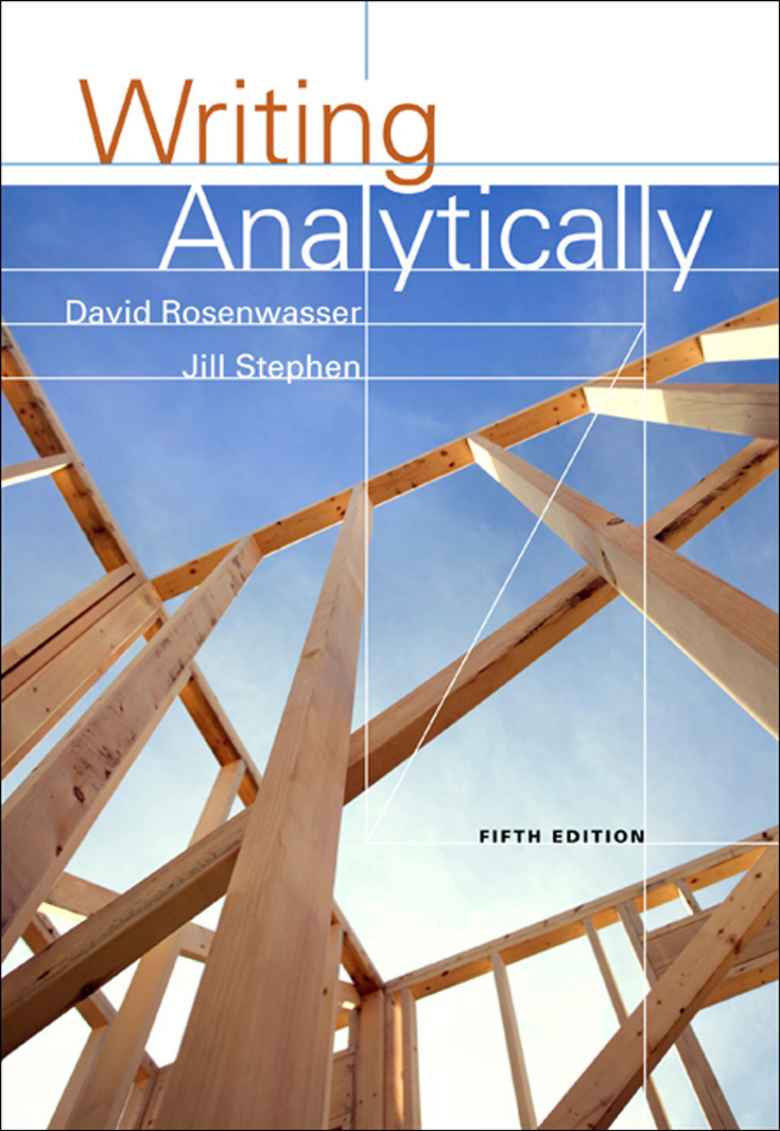

Most ebook files are in PDF format, so you can easily read them using various software such as Foxit Reader or directly on the Google Chrome browser.
Some ebook files are released by publishers in other formats such as .awz, .mobi, .epub, .fb2, etc. You may need to install specific software to read these formats on mobile/PC, such as Calibre.
Please read the tutorial at this link: https://ebookbell.com/faq
We offer FREE conversion to the popular formats you request; however, this may take some time. Therefore, right after payment, please email us, and we will try to provide the service as quickly as possible.
For some exceptional file formats or broken links (if any), please refrain from opening any disputes. Instead, email us first, and we will try to assist within a maximum of 6 hours.
EbookBell Team

4.3
98 reviews 
ISBN 10: 1413033105
ISBN 13: 978-1413033106
Author: David Rosenwasser, Jill Stephen
The popular, brief rhetoric that treats writing as thinking, WRITING ANALYTICALLY, Fifth Edition, offers a series of prompts that lead you through the process of analysis and synthesis and help you to generate original and well-developed ideas. The book's overall point is that learning to write well means learning to use writing as a way of thinking well. To that end, the strategies of this book describe thinking skills that employ writing. As you will see, this book treats writing as a tool of thought--a means of undertaking sustained acts of inquiry and reflection.
Unit I. The Analytical Frame of Mind: Introduction to Analytical Methods
1. Analysis: What It Is and What It Does
2. Counterproductive Habits of Mind
3. A Toolkit of Analytical Methods
4. Interpretation: What It Is, What It Isn't, and How to Do It
5. Analyzing Arguments
6. Topics and Modes of Analysis
Unit II. Writing the Analytical Essay
7. What Evidence Is and How It Works
8. Using Evidence to Build a Paper: 10 on 1 versus 1 on 10
9. Making a Thesis Evolve
10. Structuring the Paper: Forms and Formats
11. Introductions and Conclusions
12. Recognizing and Fixing Weak Thesis Statements
Unit III. Writing the Researched Paper
13. Reading Analytically
14. Using Sources Analytically: The Conversation Model
15. Organizing and Revising the Research Paper: Two Simple Essays
16. Finding, Citing, and Integrating Sources
Unit IV. Grammar and Style
17. Style: Choosing Words for Precision, Accuracy, and Tone
18. Style: Shaping Sentences for Precision and Emphasis
19. Common Grammatical Errors and How to Fix Them
writing analytically
10 on 1 writing analytically
why does formality matter when writing analytically
notice and focus writing analytically
writing analytically 9th edition
Tags: David Rosenwasser, Jill Stephen, Writing, Analytically